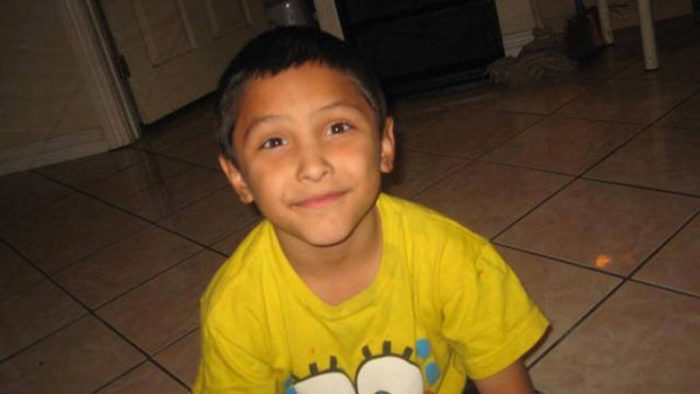True Crime Tuesdays: The Trials of Gabriel Fernandez
Review Overview
Informative
4Distressing
9Opaque
6Helen Archer | On 24, Mar 2020
Every Tuesday, our resident true crime obsessive gets their fix with a documentary film or series. We call it True Crime Tuesdays.
In these disquieting times, viewers are doubtless seeking some sort of escapism from a grim news cycle and a rapidly changing world, but be warned: this harrowing six-part documentary will not provide cheerful respite.
Directed by Brian Knappenberger, it tells the story of Gabriel Fernandez, who died in Palmdale, Los Angeles, in 2013 at the age of eight, after a prolonged cycle of abuse at the hands of his mother Pearl Fernandez and her boyfriend Isauro Aguirre. His death sparked two landmark trials – the first, seeking the death penalty for Aguirre; the second, bringing criminal charges against four of the social workers who were meant to be looking after him. Picking up from the contemporaneous reporting of Garrett Therolf at the LA Times – who is interviewed in early episodes – this is a vision of hell, in which the sickening abuse was enabled by a seemingly uncaring bureaucracy.
Much of the early episodes centre on a courtroom framework. The intense preparation for Aguirre’s trial is covered, with interviews with the prosecution lawyers as they lay bare the extent of Gabriel’s suffering. We watch as first responders and medical experts take the stand, describing in detail the nature of Gabriel’s injuries. Ex-colleagues of Aguirre testify to his previous “good character”, as the defendant stares ahead, blankly emotionless, even while the details of Gabriel’s abuse are exposed. Later on, the jury is interviewed about the decisions they came to, and why.
Testimony, too, is taken from one of Gabriel’s teachers, who gives extensive interviews to the filmmakers. She speaks of the lack of support she received not only from the school, but from the social work department when she tried – repeatedly – to report the abuse, and get them to take action. This is mirrored, later on, by an interview with a security guard who worked at a social services building, who also tried to report what he saw, and who is, like the teacher, still haunted by the fact he was not listened to, and was unable to prevent Gabriel’s death.
Intercut with all this are interviews with Pearl Fernandez’s family, who themselves attempted to alert social services to the abuse in the months leading up to Gabriel’s death. It’s here that the failings of the documentary begin to become apparent. A somewhat garbled story emerges, noticeable for the information that is omitted. We discover that Gabriel spent his formative years in the care of Pearl’s great uncle Michael, and his partner, David Martinez, where he was a seemingly happy, well-cared for, and much loved child. It is eventually revealed that Pearl’s extended family were not happy with this arrangement, although it is left to the viewer to interpret the possible homophobia behind their concern. There are whispers about accusations of sexual abuse, which led to Gabriel being taken to live with his grandparents, before being given to his mother in the months leading up to death. Several episodes in, David Martinez is interviewed – since Gabriel’s death, he has been deported to El Salvador. There is no interview with Michael, because – it eventually transpires, if you listen closely enough – he has since died. Viewers don’t like to be spoon-fed, but there is a fudging of detail here that is glaring for the omissions and seemingly deliberate obfuscations, which tears down confidence in the documentary as a whole.
There’s also a lack of investigation into what motivated Pearl and Aguirre to their increasing cruelty. No interviews are given by either, so various theories are thrown up in the air. “Scapegoat Syndrome” is mentioned, again in passing – where members of one family or household single out one of their own to bully. Pearl herself, we find out, suffered abuse as a child. There’s also a rather sensationalist strand that posits the pair got their sexual kicks from abusing Gabriel. It’s suggested more than once that Aguirre is in sexual thrall to Pearl, and was merely trying to hold on to his relationship with her. When Pearl finally breaks her silence within the documentary, it is in the form of a courtroom statement, in which she says she hopes her other two children will “come to their senses” and visit her.
There is, too, a looseness of focus in the trial against four social workers. A picture is painted of a vast, hugely moneyed organisation, which takes care of all aspects of social care in LA, but the years-long legal case is referred to fairly intermittently. While one of the social workers in interviewed for the programme, another is heard only through telephone recordings with a lawyer. The scattershot approach to covering such a historic trial means we never really get a handle on the implications of the case.
Large questions are asked, then dropped. Is there such a thing as evil? Do monsters exist? And in what way does looking away and doing nothing make a person culpable? No rational viewer can expect answers to such questions within the framework of a Netflix true crime series, yet for its six-hour running time, this is a strangely superficial watch. It leaves the viewer feeling depleted rather than informed, confused rather than clear, and impotently despairing of the cruelty that exists in the world.
The Trials of Gabriel Fernandez is available on Netflix UK, as part of an £9.99 monthly subscription.


















